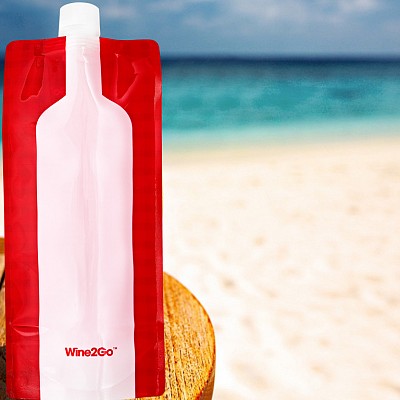Embarking on a solo hike can be an exhilarating experience, allowing you to immerse yourself in nature and find solace in its beauty. However, before you hit the trails alone, it's crucial to be well-prepared for the journey ahead. This article will guide you through the essential steps to ensure a safe and enjoyable solo hike, covering everything from packing the right gear to planning your route.
Hiking alone as a woman, requires a certain level of preparation and self-sufficiency. With no one else to rely on, it's important to equip yourself with the knowledge and tools necessary to face any challenges that may arise on your solo adventure.
By following these guidelines, you'll be ready to tackle the wilderness confidently and make the most of your time spent hiking alone. So, let's dive in and discover how you can prepare for a solo hike!
Essential Gear for Hiking Alone
When venturing out on a solo hike, it's crucial to pack the right gear to ensure your safety and comfort throughout the journey. Here are some must-have items that every solo hiker should consider:
1. Reliable Backpack
A sturdy and well-fitting backpack is the foundation of your hiking gear. Look for one with adjustable straps and multiple compartments to distribute the weight evenly and keep your essentials organized.
2. Sturdy Hiking Boots
Invest in a pair of high-quality hiking boots that provide excellent traction and ankle support. Opt for waterproof and breathable materials to keep your feet dry and comfortable, even during challenging terrains.
3. Navigation Tools
Ensure you have reliable navigation tools to keep you on track during your solo hike. A topographic map, compass, and GPS device can help you navigate unfamiliar trails and avoid getting lost.
4. Safety Equipment
Safety should be a top priority when hiking alone. Pack essential safety equipment such as a headlamp, whistle, and a multi-tool that includes a knife, pliers, and other helpful implements. Additionally, a lightweight and portable first aid kit is essential for treating any minor injuries or ailments that may occur on the trail.
By having these essential gear items with you on your solo hiking adventure, you'll be well-prepared to handle any situation that arises along the way. Remember to always prioritize safety, plan your trip carefully, and pack wisely to ensure a successful and enjoyable solo hike.
Safety Tips for Hiking Alone
Safety is paramount when embarking on a solo hiking trip. To ensure a secure and enjoyable experience, it's crucial to follow these essential safety tips:
1. Inform Someone of Your Hiking Plans
Before heading out on your solo hike, make sure to tell a trusted friend or family member about your itinerary. Provide them with details such as the trail you'll be hiking, estimated start and end times, and any backup plans you may have. Regular communication with a trusted contact can offer peace of mind and enable prompt assistance if needed.
2. Carry a Well-Stocked First Aid Kit
Accidents can happen, even on the safest of trails. Therefore, always carry a comprehensive first aid kit, including bandages, antiseptic ointment, pain relievers, tweezers, and any necessary personal medications. Familiarize yourself with the contents and basic first aid procedures to handle minor injuries until help arrives.
3. Stay Hydrated and Nourished
Proper hydration and nutrition are vital for maintaining your energy levels and stamina during a solo hike. Carry an adequate supply of water and pack nutritious snacks to replenish your body throughout the journey. Remember to drink water frequently, even if you don't feel thirsty, to avoid dehydration.
4. Be Mindful of Your Surroundings
When hiking alone, it's essential to stay aware of your surroundings and be cautious of potential hazards. Keep an eye out for uneven terrain, slippery surfaces, wildlife encounters, or changing weather conditions. Listen to your instincts and adjust your plans accordingly to enhance your safety.
By heeding these safety tips for solo hiking, you'll be able to minimize risks and enjoy your outdoor adventure with confidence. Remember, preparedness and attentiveness are key to staying safe while exploring the wonders of nature on your own.
Conclusion
In conclusion, embarking on a solo hike can be a thrilling and fulfilling experience. By adequately preparing yourself, packing the right gear, and prioritizing safety, you can make the most of nature's solitude while staying safe.
Whether it's a day trip or an extended journey, hiking alone allows you to connect with nature and discover your own strength and independence. Exploring serene trails, breathing in the fresh air, and marveling at breathtaking vistas can be deeply rejuvenating and empowering.
So, lace up your boots, plan your adventure, and set off on a solo hike that will create lifelong memories. Remember, every step you take towards self-discovery and nature's embrace brings you closer to an unforgettable experience like no other.






































